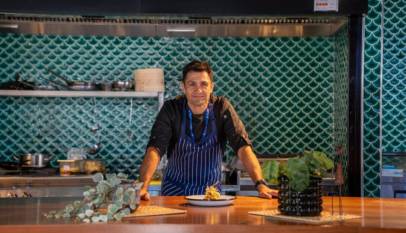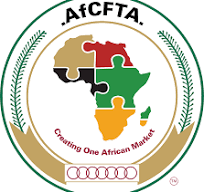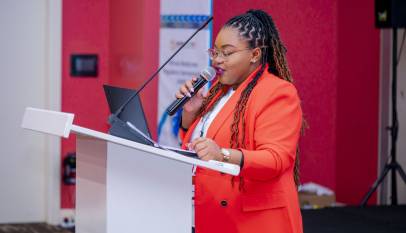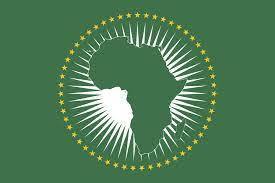SSSCF: Providing succor to sufferers of sickle cell disease
Since its inception in 2014, the Samira Sanusi Sickle Cell Foundation, SSSCF, has helped hundreds of sufferers of SCD with access to information and basic medication as well as created awareness around the causes, symptoms, complications, and management of the scourge among the general public
Having been robbed of her entire childhood by sickle cell anemia before she eventually got cured of the scourge courtesy of a bone marrow transplant, Samira Sanusi, now believes the only way she could express her gratitude to her creator is by dedicating the rest of her life to helping sufferers of sickle cell disease, SCD, in her native country, Nigeria.

“I got the inspiration to start the foundation from my own life,” Samira Sanusi told African Newspage. “I was born with sickle cell disease and it nearly cost me my life; I was sick and wheel-chair bound for 7 years. I was in hospitals in different countries. I felt the only thing I could do to express my gratitude to my creator was dedicating the rest of my life to helping sufferers of sickle cell disease.”
Therefore, upon her return to Nigeria, Samira Sanusi realized that whereas her family could afford to sponsor her to where ever it was in the world so she could be cured of the ailment, hundreds of thousands of other victims of sickle cell anemia were not so fortunate and couldn’t even dreamed of getting cured of the ailment. In fact, they couldn’t even have access to daily basic medication for sufferers of sickle cell anemia.
“When I came back to Nigeria,” she told African Newspage “I realized that even though I had gone through a lot, I was still very lucky because so many people living with the disease could not afford basic medication… I realized so many people were less fortunate and could not get that; they couldn’t even afford day to day medication – not to talk of getting a transplant.”
Since its establishment in 2014, the Samira Sanusi Sanusi Sickle Cell Foundation has been raising funds through organizations and individuals to provide sickle cell patients with care, aid and treatment as well as sensitize the general public on the disease.
The Foundation has thus been organizing awareness programs across Nigeria – which has the highest figures of sufferers of SCD in the world – to educate and sensitize the general public about the sickle cell disease; how it impacts the lives of its sufferers, its complications, and the importance of genotype testing before marriage to ensure compatibility and therefore avoid giving birth to children with SCD.
As part of the SSSCF’s awareness activities for the commemoration of the 2016 world sickle cell awareness day, the Foundation hosted series of outreaches in communities across Nigeria (where every year over 150,000 children are born with SCD) including Lagos, Ibadan, Kaduna, and Funtua, in Katsina state.
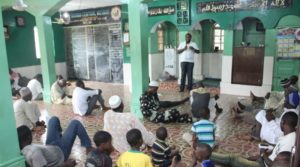
In Lagos, Nigeria’s commercial capital, the Samira Sanusi Sickle Cell Foundation, through its members and volunteers, carried out a community outreach at the Bariga Central Mosque and the First Baptist Church, Bariga to create awareness on the sickle cell disease. Lectures were, therefore, delivered at the 2 places of worship followed by dialogue on sickle cell anemia, its management and care as well as the importance of pre-marital genotype testing.
Speaking during a similar sensitization program in Ibadan, southwestern Nigeria, Zaenab Olaniyan, coordinator of SSSCF in Ibadan said the Foundation was aimed at helping people living with sickle cell anemia towards preventing further spread of the disease. The event also witnessed sensitization speeches by doctors and SSSCF volunteers around the history of sickle cell anemia, its causes, symptoms, complications, management, cultural myths as well as preventive measures through genotype testing.
Speaking at the event, a community leader, Chief Akinloye emphasized to the people the importance of preventing the disease rather than trying to manage and find curative measures for it. He enjoined the community members to prioritize knowing the genotype status of would-be marriage partners of their sons and daughters over their financial status.
Similarly, in Kaduna state, northwestern Nigeria, SSSCF’s team held a community outreach program at Yakawada village in Giwa local government area, to enlighten the members of the community about SCD, clear misconceptions about it as well as counsel those living with the disease on lifestyle and management tips. The outreach was followed by free genotype testing for the residents of the community to help them know their genotype and compatibility.
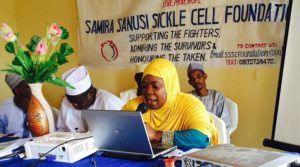
Delivering a paper on the causes, symptoms, complications, management of sickle cell anemia during SSSCF’s community outreach at Funtua, Katsina state, Hafsat Ahmad Rufai, a medical doctor at the Ahmadu Bello University Teaching Hospital, Zaria said the 19th of June of every year had been set aside by the UN as world sickle cell day to create awareness about the disease around the world.
Dr Rufai, who said 2–5% of children given birth to in Nigeria were born with sickle cell disease, called on the need for genotype testing to be carried out on children immediately after their birth. She stated that whereas in the past, 80% of children born with sickle cell disease never made it to adulthood now many such sufferers of the ailment could survive to old age.
Aminu Inuwa, the Imam of Funtua who also spoke at the event said Islam and the Sharia allowed for would-be couples to go for genotype tests before marriage adding that in the event they happened to be genetically incompatible they must not go ahead with their marriage plans so as to avoid giving birth to children with the sickle cell disease.

It is estimated that, every year, over 500,000 persons are born with the sickle cell disease in the world and that over 50% of that figure, most of which are in Sub Saharan Africa, don’t live past the age of 5.


